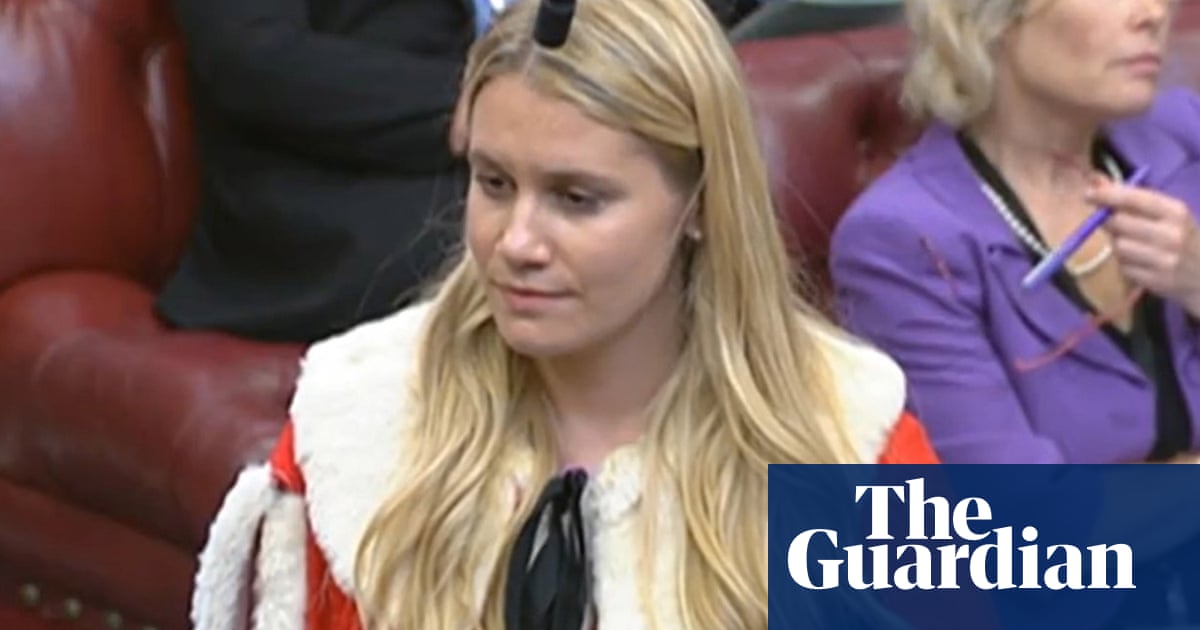NatWest chief executive Dame Alison Rose has finally stepped down effective immediately, after admitting that she leaked private banking information about Nigel Farage to the BBC.
Dame Alison fell on her sword just hours after Downing Street expressed “significant concerns” about plans for her to remain in her post.
Howard Davies, chairman of the NatWest Group Board, said in a statement: “The Board and Alison Rose have agreed, by mutual consent, that she will step down as CEO of the NatWest Group. It is a sad moment.
“She has dedicated all her working life so far to NatWest and will leave many colleagues who respect and admire her.”
Dame Alison said: “I remain immensely proud of the progress the bank has made in supporting people, families and business across the UK, and building the foundations for sustainable growth.
“My NatWest colleagues are central to that success, and so I would like to personally thank them for all that they have done.”
NatWest’s board was locked in emergency talks on Tuesday night over Dame Alison’s future. The board had initially expressed full confidence in her, but indicated it would dock her £5m a year pay and bonuses in a last ditch attempt to save her skin.
A statement from the board on Wednesday confirmed Paul Thwaite, the current chief executive of the company’s Commercial and Institutional business, would take over Dame Alison’s responsibilities for the next year, pending regulatory approval.
The appointment of a permanent successor would take place “in due course”, it said.
Dame Alison’s resignation, which was widely anticipated in Government, follows weeks of growing controversy over Coutts’ decision to “de-bank” Mr Farage because of his political views.
But it will only fuel calls for further heads to roll with Mr Davies, the chairman of the NatWest Group which owns the upmarket bank, now directly in the firing line.
Dame Alison had earlier admitted she was the source of a BBC story which claimed Mr Farage’s account was closed because he fell below Coutts’ wealth threshold.
She acknowledged the briefing was a “serious error of judgment” but said she believed the information she disclosed to the broadcaster was already in the public domain.
The Telegraph last week revealed Dame Alison had sat next to Simon Jack, the BBC’s business editor, at a charity dinner the day before the BBC article was published.
‘Serious error of judgment’
In an earlier statement, Dame Alison said: “I recognise that in my conversations with Simon Jack of the BBC, I made a serious error of judgment in discussing Mr Farage’s relationship with the bank.”
Mr Farage, the former Ukip leader, earlier said Dame Alison, Coutts CEO Peter Flavel and Sir Howard Davies, the NatWest chairman, all deserved to lose their jobs over the scandal.
Speaking on his GB News show, he said Dame Alison was “unfit” for her role, adding: “This is a serious breach. I hadn’t said to anybody that the bank I was having trouble with was Coutts... She chose to put it into the public domain with Simon Jack. She broke an essential confidence.”
Mr Farage also said he was unhappy with Dame Alison’s explanation, pointing out that the BBC had said in its own statement on Monday that it had gone back to her the next day to check its story and request approval to publish.
He wrote on Twitter:
Meanwhile, the Financial Conduct Authority (FCA), the banking watchdog, revealed that it had raised concerns about breaches of confidentiality by Coutts and its parent company NatWest and said it had “made clear” to the bigger bank the need for an independent review.
On Tuesday night, senior Conservative MPs demanded that Dame Alison resign or be fired from her job at a bank that is 39 per cent owned by the taxpayer.
Sir Jacob Rees-Mogg, a former business secretary, said: “She has to go. She has admitted it and she has to go. She has broken one of the fundamental codes of banking and therefore she must go.”
‘She has broken the cardinal rule’
A City chief executive earlier on Tuesday said: “She has broken the cardinal rule of banking. An FCA investigation is inevitable now. Her position is untenable and she should resign. It’s ridiculous the board is backing her given the seriousness of the offence.”
The scandal engulfing NatWest comes after a Telegraph investigation revealed that Mr Farage’s accounts were closed after Coutts decided that the views of the former Ukip leader “do not align with our values”.
The BBC had previously run a story by Mr Jack that falsely claimed that Mr Farage had not met Coutts’ financial requirements. Dame Alison and Mr Jack had sat next to each other at a charity dinner the night before the BBC published its story on July 4.
Explaining what she had told Mr Jack, Dame Alison said in her statement: “Believing it was public knowledge, I confirmed that Mr Farage was a Coutts customer and that he had been offered a NatWest bank account. Alongside this, I repeated what Mr Farage had already stated, that the bank saw this as a commercial decision.”
She insisted she had not revealed “any personal financial information” about Mr Farage but admitted: “I left Mr Jack with the impression that the decision to close Mr Farage’s accounts was solely a commercial one.
“Put simply, I was wrong to respond to any question raised by the BBC about this case. I want to extend my sincere apologies to Mr Farage for the personal hurt this has caused him.”
Mr Farage earlier called for Dame Alison to quit on Twitter: “Dame Alison Rose has now admitted that she is the source. She broke client confidentiality, and is unfit to be CEO of NatWest Group.
“Meanwhile, Coutts CEO Peter Flavel must take the ultimate responsibility for de-banking me based on my political views. Sir Howard Davies is responsible for overall governance. He has clearly failed in this task, least of all by endorsing their conduct. In my view, they should all go.”
The former Brexit Party leader has accused Mr Flavel of being “asleep at the wheel” throughout the scandal. He has written to him three times, but has yet to receive a reply and has called his handling of the crisis “an absolute disgrace”.
Bank backflips
Hours before the announcement of Dame Alison’s resignation, Sir Howard Davies, NatWest’s chairman, said the bank was standing by Dame Alison.
In an earlier statement on Tuesday, he said: “This was a regrettable error of judgment on her part. The events will be taken into account in decisions on remuneration at the appropriate time.
“However, after careful reflection the board has concluded that it retains full confidence in Ms Rose as CEO of the bank.
“The board is clear that the overall handling of the circumstances surrounding Mr Farage’s accounts has been unsatisfactory, with serious consequences for the bank. The board will commission an independent review into the account closure arrangement at Coutts, and the lessons to be learnt from this.”
It is unclear whether Dame Alison’s leak to the BBC will form part of that independent inquiry. The FCA issued a warning to the bank that unless the review was “well resourced”, given full access to all “necessary” information and takes place “swiftly and fully”, it reserved the right to launch its own inquiry.
Sheldon Mills, the executive director at the FCA, said: “We have raised concerns with NatWest Group and Coutts about the allegations relating to account closures and breach of customer confidentiality since these came to light.
“We made clear our expectation that these issues should be independently reviewed and note (Tuesday’s) statement from the NatWest Group Board confirming this will happen. It is vital that the review is well resourced and those conducting it have access to all the necessary information and people in order to investigate what happened swiftly and fully.
“On the basis of the review and any steps taken by other authorities, such as the Financial Ombudsman Service or Information Commissioner, on relevant complaints, we will decide if any further action is necessary.”
The pressure on Dame Alison to admit her role in the leak had become overwhelming ahead of the publication on Friday of NatWest’s results for the first half of the year.
The announcement would have been dominated by questions over whether she was the source of the BBC story.
https://news.google.com/rss/articles/CBMiXWh0dHBzOi8vd3d3LnRlbGVncmFwaC5jby51ay9uZXdzLzIwMjMvMDcvMjUvYWxpc29uLXJvc2UtbmF0d2VzdC1sZWFrLWJiYy1uaWdlbC1mYXJhZ2UtY291dHRzL9IBAA?oc=5
2023-07-26 03:09:00Z
2246872094



